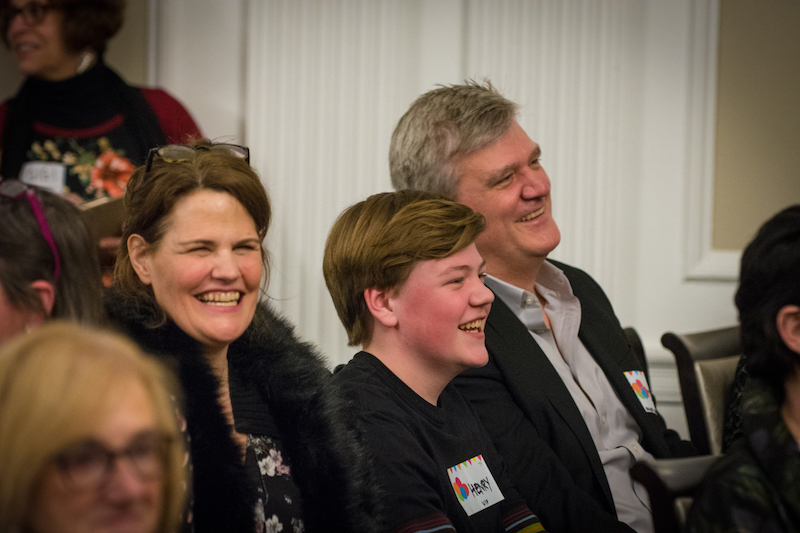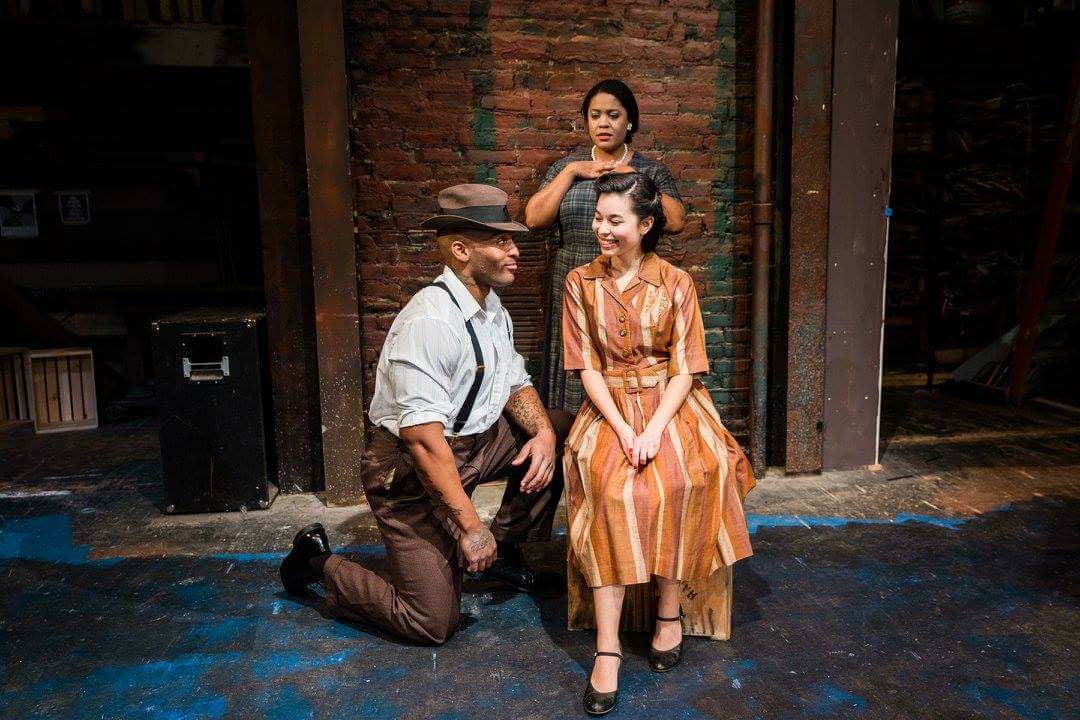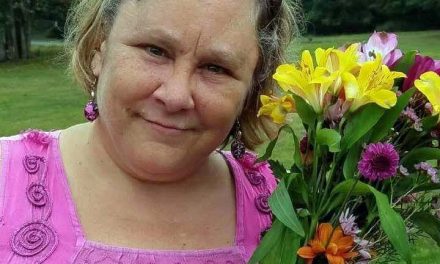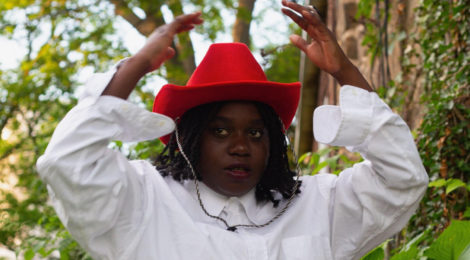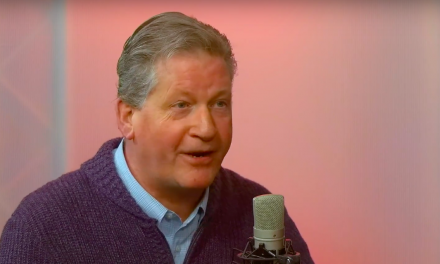The Collaborative recently got the chance to talk to Martha Banta and David Turner about a broad range of topics including how they got their start in the business, working together to create ATF, bringing professional theatre to upstate audiences and even their roles as parents of a teenage son. Below is a full transcript of our interview, with minor edits for clarity. check out our full feature on Adirondack Theatre Festival.
Collaborative: There’s a lot of great information out there already about the early days of Adirondack Theatre Festival and getting started in the RV park… I wanted to ask a couple questions about information that maybe isn’t as readily available, going back to how you got started in your careers. What were some of the early experiences you had growing up that led you to choose the career path that you did?
Martha Banta: I’ll go first. I grew up in the area; I got to Queensbury in seventh grade. I went to Lake George High School, and joined the Lake George Youtheatre as a kid. I was very inspired after that to keep doing theater.
Collaborative: That was a school program?
Banta: No, it’s a summertime program for kids. Last year was its 40th year, and it takes kids from age 11 until their last year of high school. They do three musicals in four weeks.
Collaborative: Like a summer stock theater.
Banta: Yeah, but for kids. You get cast in all of the shows, or in one of them you might be doing the backstage stuff or running a spotlight, something like that. You had to do your own costumes; you had to come with your lines already learned and then they teach you the music. It’s pretty fast and furious… That’s when I first started it and just fell in love with it and knew I wanted to do it for a living if I could. My parents were very supportive.
So I went to Stony Brook University as a theater major. I knew pretty early on that I wanted to direct, as opposed to act, so I started doing that right away and mainly focused on that from then on.
Collaborative: How about you, David?
David Turner: Well, I have a different story. I went to high school in Toronto, Canada, and I got on the scenery crew, building sets… I tried acting once, because I wasn’t meeting very many girls on the set crew. So I thought I might meet more girls if I tried acting, and it was true — but I didn’t actually enjoy it as much.
When I was looking at colleges, I just happened to see that there was this field of arts administration. It was really sort of a nascent field at that point, in the late ‘80s; there were very few schools that offered any classes in it. One of the schools I wanted to go to was University of Michigan, and they had a couple of classes. By the time I got done there, I knew that there was this field called arts management and I went into it, moved to New York and tried to keep a foot in both the commercial world and the nonprofit world.
When we were 26 and decided to start a theater, I knew just enough to do the basics of the management. I’d never really raised money before, but certainly we dove into it and sort of went from there.
Collaborative: So you both went to New York. For a lot of people that concept is completely overwhelming. How did you begin to establish yourself and find some success there?
Banta: In my mind, it was the mecca of where you do theater — so we had to at least go there to begin with. I did an internship right out of college at Playwrights Horizons, which is an off-Broadway theater that does new work. I also did one at Williamstown the following summer. I was looking to make money; my thought was to take a job that wasn’t waiting tables or something like that, but to take a job that was going to be in the theater somehow. Maybe not directing, but at least be in the building somehow. I actually got hired to be the assistant to the production manager at New York City Opera, which was really cool: I didn’t know a thing about opera. It was really theater on the grandest scale.
But as I was doing that, I was missing actual “theater theater.” With some friends from college, we scraped together money from other friends, like an “everybody pitching in $25” kind of thing. We put on our own shows down in the East Village, which was not “trendy” at that point. We promised this kind of hippie couple that had this space that we would just keep it clean, and they would let us use it. You could never do this in the real estate days now! We produced our own shows there, and I directed some of them — and I could also get rehearsal space at Lincoln Center, at the opera. So we’d be rehearsing at Lincoln Center, and then performing down in the East Village. It really cut my teeth in running a theater.
Then I looked for another job to get more into theater. I started reading scripts for many of the off-Broadway theaters around, so I started to get to know the playwrights that were out there… Long Wharf Theatre in Connecticut sent me to readings and I’d report back, so I also got to know the casting pool of people that were out there doing readings. A job came up for New York Theatre Workshop on their artistic staff; a big part of it was casting with new work. They hired me; I was there when Jonathan Larson came in and gave us his script and score, and we started listening to that and deciding if should do “Rent” or not.
At the same time, I met David. It was in those five years that I was there that we decided we wanted to do our own theater as well, but it would just be in the summertime. For a while I was kind of coming home from New York Theatre Workshop and doing the work of getting Adirondack Theatre Festival up and going with David and a whole bunch of other founders. I look back at it now — I guess we just had more energy, it just seems impossible now.
Collaborative: You anticipated my next question there, which was: How did you meet one another?
Banta: Yes. We met through a friend… actually one of our founders, Matt Frey. He’s a lighting designer who went to Stony Brook and transferred to University of Michigan halfway through. So he knew me, and then he transferred to Michigan and he knew Dave. Once everybody was back together in New York, you kind of all meet each other’s friends… and there you have it.
Collaborative: You were saying at the party that when you founded ATF you were still boyfriend and girlfriend.
Turner: Yes, we were.
Banta: We lived together for about seven years before we got married, and we started ATF within the first three years maybe? ATF did not split us up.
Collaborative: I guess that was a good test, right?
Banta: We worked really well together. We definitely have different expertise; like Dave was saying, he had been working in commercial theater and I had just been working in nonprofits. I knew some of the artistic, he knew more of the business side of things. We both had similar work ethics, for sure. That went a long way. It was exciting to pull it off.
Collaborative: Dave, how did you get your foot in the door in the commercial world?
Turner: I also had an internship when I first got to New York, at The Public Theater. And the Public, while it’s a nonprofit company, in the late ’80s it revolutionized nonprofit and commercial theater because it was the producer of “Chorus Line.” That was still running on Broadway when I got there… in the general management office we managed the shows that were being produced in-house, and also we had managers looking after “Chorus Line.” I was able to see that Broadway world a little bit.
There was this position called the company manager, and I thought that might a job I’d want to do. I pursued that after my internship turned into a job. At that time, it wasn’t just commercial Broadway; there was also a very strong, healthy commercial off-Broadway scene, which really doesn’t exist in the same degree any more. When I got to New York, “Driving Miss Daisy” was in its fifth year off-Broadway, “Little Shop of Horrors” was in its seventh year. “Steel Magnolias” ran for four years. That was commercial off-Broadway; people didn’t really want to go to Times Square. That was a great place to kind of cut one’s teeth. My first company manager job was with “Nunsense.” That was a 199-seat theater, and the show had been running for eight years. It wasn’t particularly challenging — but I was able to learn how to be a company manager on a show like that at age 25. Working off-Broadway allowed me to do ATF because I would have to go away from like May to August. Most big Broadway shows want you to commit for a longer period; they at least want you to commit through the Tony Awards, in June. For an off-Broadway show, they hire you in September and they sort of have the attitude of “should we be so lucky as to still be running in May, we’ll be happy to replace you.”
That was where I did a lot of shows in a lot of small theaters that are now Sephoras and Duane Reades, I think. They’re just not there anymore. The transformation of Times Square really changed all that.
Collaborative: So there are still off-Broadway theaters, but it sounds like it’s nothing like it was back then.
Turner: Yeah, it’s just not the same. It’s really hard for a commercial off-Broadway show to get traction because Broadway is so much stronger than it was. In the late ’80s/early ’90s, a third of the Broadway theaters were dark. It’s all sort of a function of the real estate business as much as it is the theater business. Off-Broadway definitely still exists, but the commercial off-Broadway, where investors could have a pretty good shot at making some money if a small play could run for three to six months — that’s not the case anymore. The costs are so high, and it’s so hard to get traction from a marketing perspective; there’s so much out there, it’s hard to break through when you’re in a little 200-seat theater in the West Village.
Collaborative: You said you wanted to do theater together. Had you considered doing something in New York, or did you always know you wanted to do it someplace else? What made you decide to pick where you did, ultimately?
Banta: It wasn’t like: “Oh, we want to do something here in Glens Falls, so let’s do theater.” I think, Dave, it was more your idea than mine; I always thought I would want to run my own theater, but I didn’t think it would be at the time that we did it. I think you (Dave) were more thinking that way, and I just sort of was like, “OK, sure, yeah, let’s do that.” Then we had to figure out where. We knew we wanted to be able to come and go from New York, but not be so close that it would just be doing shows for the same people we were doing them for in New York. We wanted a different experience. The way I describe it is: I’d been doing shows for New Yorkers that read about it in the paper, and now they came in with their arms folded in a “Show me what this is” sort of way. It was the idea of getting out of that environment and doing new things with an audience that was just curious and open.
That was the blessing and the curse about doing it in a place that had never seen anything like this. I mean, they had seen the high school stuff and the community theater things, but to do new work — it’s an education to understand that we actually made changes in this yesterday. And after an audience saw it tonight, we made changes in it again. After it leaves ATF, it’ll probably change again and it might get published. That was all news to them — and to know that they can be a part of it and give input to it. The audience up there, they were amazing. You could hear a pin drop when we did our first shows.
Turner: I think our audience was a huge asset early on. We wouldn’t have done it a second time — over the years, we’ve seen a few summer theaters come and go in the region. It’s a great energy to get something like that off the ground and do it once, but the real test is: Can you do it twice? In order to do it twice, you need an audience that wants to come back. We felt like we had that.
Our first summer, we were invited to a meeting of a group of Glens Falls business leaders who, at that point, we’re talking about potentially building an opera house for the Lake George Opera Festival (which eventually moved to Saratoga). That didn’t really work for us, because we were doing small intimate plays and musicals; we were looking for a two- or three-hundred seat theater, not a thousand-seat theater. But the fact that people were even talking about that was really eye-opening. That, combined with the reception that we had, was like “Well, I guess we’ll do it again.”
In our second season we used the empty Woolworth’s store, and that just caught on fire. People were so excited to come back to their downtown and go to a play. It was really great timing because the downtown had sort of bottomed out, and we just caught that moment where people were like, “Oh, this is what my downtown can be. It’s not retail anymore, but it can be dinner and a show.” Now we’ve seen that story replayed in one downtown after another for the last 20 to 30 years. It really was sort of a textbook example of that.
Collaborative: So how did Glens Falls get chosen?
Banta: One of the other places that we looked at was Woodstock. There had been a theater in Woodstock that had closed up. We looked there and thought, do you want to go to a place that had already tried this? I did know enough people (in Glens Falls); we started to think that to go to a town where you know no one and try to get some help or some ideas or some advice would be hard. We went up and down trying to figure it out… We’re calling it the Adirondack Theatre Festival, and technically Glens Falls isn’t in the Adirondack park. We called ourselves a “festival” with the idea that we would do things in different places: that you could see something in one night in Lake George, one night maybe in Glens Falls, maybe we’d get up in Warrensburg. It would be more of a two-week event. But what that would take was way more than we could muster at the time.
I also knew that Dave King, whose family owned the RV park, had built a theater on the grounds. That was another reason: If he was interested, we’d have a place to start. We just needed to start somewhere, and that’s what we did at the RV park. With the Woolworth’s, going back to what I was saying about the East Village — that was storefront theater. A lot of people I knew were doing storefront theater. This, to me, was natural. When I looked into the Woolworth’s… the columns were small, they weren’t going to block view. And they were really wide apart, a nice-size stage opening. Everything kind of fell into place once we got in there. You could pop up the ceiling tiles and underneath was steel grid which you could throw pipes on… Every year we set it up differently; it would depend on what the design was, what the play was. We would reconfigure it, and that was part of the fun for people, too; they’d come to the old Woolworth’s and say “Wait, where am I? This is where the counter used to be. Didn’t the goldfish get sold down there?”
The brewpub was just opening up after our first season, across the street. There was one other restaurant, and that was it. It’s amazing as the years went on, and as the theater got built, to see it completely revitalize the whole downtown area. It’s something we certainly never set out to do… but I have to say we’re pretty proud of that.
Turner: When we went to use the Woolworth’s, it had just been purchased by a coalition of downtown businesses — a bank; and Niagara Mohawk, the power utility; and Finch Pruyn, the paper mill. They all pitched in like twenty or thirty grand each. They bought the building from the Woolworth Corporation because they wanted to make sure that something good for downtown happened with that property. So we said, “Well, while you figure out what you’re going to do with it, can we put a play on in there in the summer?” They said sure. Then they put out an RFP for retail to a bunch of Albany developers and they got no responses. That was sort of a wake-up.
The next year, it was still empty so we said, “Well, can we put two plays on?” And all of sudden there were two restaurants across the street instead of one. We got an architect friend to do a drawing of how the building could be turned into a theater, and we just hung it up in the lobby. I think (the business leaders) were smart enough to say, well, we didn’t get any response on the retail side, but this theater thing seems to be bringing people downtown. And that’s what they ultimately wanted to do. It took years and years and years of meetings, but slowly that group decided they would make it their mission to build the Wood Theater. They saw what was happening as a result of our being there for four weeks. If they could do that year-round, that certainly would make a difference.
Collaborative: I’ve heard time and again that when you got this going, people told you that in order for this to be successful you needed to do crowd-pleasing stuff like big musicals. What drove you to say: “No, we’ve got a different vision?”
Banta: Maybe it was having worked at New York Theatre Workshop and seeing it in action, but I really believe that as an artistic leader I’m meant to lead people: It’s not a road they’ve been down before. That’s why you’re leading them. It’s a different thing from “Just give them what they want, give them what they know.” It’s about “Give them something unexpected, take them somewhere they’ve never been.” You can get what you want by changing the channel at home. Live theater is going to surprise you because it’s live.
It means shaking the trees for the people that want to come to this. If we just say we’re putting on “My Fair Lady” or something, you don’t have to do much work to get people to come. To educate people that this is something new — that’s harder to do. It’s harder work, but it’s way more satisfying to me.
(But) if the community changes, is there enough support for that kind of thing? That’s always going to be the question. You’re always kind of the “smaller gem” instead of the big mainstream thing.
Turner: The other thing that was great about the work that we did, to Martha’s credit: It was really good work. Our commitment was to get really good, professional, top-notch actors. The first play we did in the Woolworth’s was Edward Albee’s “Three Tall Women.” When you have a three-person play that is top-notch, and the critics come up from the Capital District and say “This is the best thing you’re going to see all summer”… from my perspective, you can actually make a lot more money on that three-person play than you can on a big musical. Musicals are very expensive, and they’re a much scarier role of the dice. I think of some of the plays we did in our early years — we did “Art,” we did “Wit” — they all were really good plays, and we made money on those plays when they took off.
Collaborative: So those plays were in their early incarnations? You got them started?
Turner: No; this is slightly different than what the festival is now, with Chad (Rabinovitz’s) commitment to new work. We called ourselves “new and contemporary” plays; we would always be doing new work, but we would also throw in a recent successful play or musical from New York.
Banta: We always said it had to be five years or less, in terms of when it had hit. (But) we would get these very early on, pretty soon after they had happened in New York.
Collaborative: So it’s been 25 years and it’s been very successful. Is this along the lines of what you’d hoped for? And, I know you’ve taken a back seat, but do you have strong feeling about where you’d like to see it go in the future?
Banta: We can’t believe it’s been 25 years. We did the first 13 years; soon it will be around longer than we would have done it. That’s just amazing to me.
When Mark Fleischer took over, he kept a similar way of producing; unfortunately, he hit the recession in 2008. He took over right when it was just really tough for everyone. He kept the doors open, which was amazing. Chad has such great strength in marketing that he has also been able to keep it going really strong. It’s great to me that he wants to do all new work; to me that’s very exciting.
Collaborative: So he’s not doing any recent contemporary stuff; it’s all new work.
Banta: Yes. Some of them have been workshopped here and there, or (there’s been) a production somewhere else. The ones we just named were (already) Tony winners or Pulitzer prize winners, and that was part of what we wanted to do — actually bring that to Glens Falls, because nobody else would do that and that was a way you could see it.
Turner: For me, being the person who had to make sure we could make the payroll every week, I’m just so thrilled that the lights are still on. Every leader should have a different way of keeping those lights on… but the fact is that through two different leaders after us, the commitment to new work and contemporary work is as strong as it was when we started. That’s a tribute to the people who have run it, and it’s a tribute to the community and the audience who choose to support that and realize how special it is.
It’s exceeded our expectations. We can’t believe that it’s been around for 25 years — something that we started on what felt like a whim.
Collaborative: How involved are you in the festival now?
Turner: I’m now an emeritus board member, I believe. I think we’re there to be background; we love to go to the shows and love to help out where we can. I spent lots of time organizing all those tickets they were auctioning off at the (anniversary party) benefit. But we’re really cheerleaders at this point, more than anything else.
Collaborative: A cheerleader is a great thing to have. Tell me a little about what you’ve been up to in the years since you were so strongly involved in ATF.
Banta: In the beginning, at the same time as we were doing ATF, I ended up leaving New York Theatre Workshop and I was the assistant director on “Rent” and I ended up looking after the Broadway show, keeping that going, as well as the tour and London. I directed the first couple international ones, in Japan and Germany. Then I was directing a lot, mainly regionally, in different states.
We had our son Henry, who’s now 13. I also was the associate director of “Mamma Mia!” in New York, as well as the tour. With those kinds of jobs where you’re just looking after these long-running shows, you’re not there every night; luckily I can still direct in between that. I did some directing and teaching at some of the schools — NYU and Julliard. I went back to Stony Brook and did some work there too.
Collaborative: I feel like I’m talking to like three people when I talk to you, Martha. And then Dave is three more.
Banta: (laughing) Yeah, I feel like three or four or five people sometimes. And I just recently put out a tour of “Rock of Ages,” which I didn’t do originally at all. I never even saw it before. They wanted to put out a new tour. So that’s out, and going now; it’s coming to Proctors in April. It was a really fun show to work on.
Collaborative: And “Book of Mormon” is coming (to Proctors) as well; Dave, you’re involved with that?
Turner: I am, yeah. Once we stopped doing ATF, I was available for those Broadway jobs that I was talking about. I started working for a general management office, and we were lucky enough to be the general managers of “Book of Mormon.” It’s now been part of my life for 10 years. My office looks after the Broadway production, and the tour; we also consult on the London production and the Australian production. We’re going to start a European tour this summer, so that’s been a fantastic show to be associated with. I now run the office; we also have been doing “Mean Girls” for the last two years, which has been really fun.
Collaborative: You mentioned your son Henry. Is it challenging to be busy arts professionals as well as parents?
Banta: (laughing) Well, particularly when they’re about to be 14. I think it’s like any working parents; you have to figure it out. Dave is pretty consistent with how much he has to work, which is a lot. I’m more freelance-like, so there will be a couple months where it’s rough because I’m in rehearsal and tech; then I’ll free up again. It’s just about being able to have a good village of people around you to help out during those times.
He also gets the bonus of being around the business, seeing whatever shows he sees and getting to go backstage and have his picture taken with Lin-Manuel Miranda when he goes to see “Hamilton.” It’s really worked out better than I panicked about when we first had him, like “How is this going to work!” I didn’t grow up in New York; I didn’t know what it’s like to have a kid in New York, but it’s been amazing. I mean, I wish I had grown up in New York. I think the opportunities he’s getting and what he’s around is incredible.
Turner: I like to say ATF was our first child, and then we gave it up for the betterment of our second child.
Collaborative: Wow, the timing is just about right, too — you’ve been gone from helming the festival for 12 years, and he’s 13.
Banta: Yeah, it’s true.
Turner: It got hard. We opened the Wood Theater in Year 10, and after that it needed more full-time attention. We didn’t want to move to Glens Falls full-time, and that’s sort of why we gave it up. It needed more attention than we could give it, in order to get it to the next level. But we’ve been lucky; we’ve been able to trade off. I took the better part of a year and a half off when he was first born and was the stay-at-home dad. That was when “Mamma Mia!” was at its peak and there were two or three companies in North America that Martha was looking after.
I stayed home and I did ATF; that was all I was doing at that point. It grew to the point where it was like: “We either need to do this full-time or see if we can pass it on.” Luckily, we were able to pass it on.

